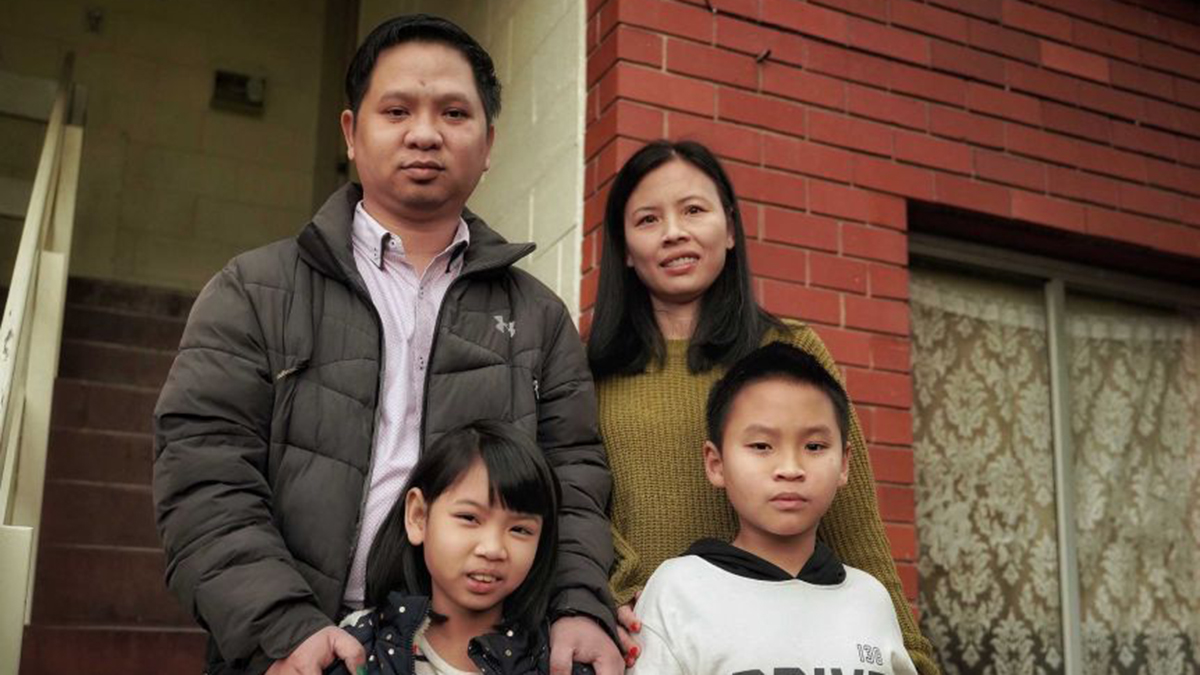Not long ago, a family-run hospitality business in my town posted a plea for help on the local Facebook page: please come and buy our stuff! In anticipation of some big annual events in Tasmania, months ago they had ordered piles of perishable stock. Now it was all sitting in their garage. In desperation, they flogged it off to locals at a heavy discount, to try and at least get some of their money back.
A local Asian grocer is doing the same: catering sacks of dumplings and dim sum, normally supplied to local restaurants, are being offered to the public at cut prices. Meanwhile, what passes for Launceston’s restaurant strip is a wasteland of empty footpaths and closed shops.
Despite the fantasies of governments that they can just “hibernate” economies at will, people with actual skin in the game are living the harsh realities of government dictates.
Jacky Pham and his wife both work as nail technicians.
When social distancing measures to curb the COVID-19 pandemic were put in place two months ago, their jobs became redundant.
But even though the couple had both lost their jobs, they still had to meet their $700 fortnightly rent payments for their home in Hobart’s Sandy Bay suburb.
The Phams’ situation shows how critically interdependent modern economies are. Small businesses whose cashflow is suddenly cut off by government decisions have no choice but to lay off workers. Suddenly, those workers are left without income, but still have bills to pay.
Sure, the Phams’ landlord is being intransigent in not offering some form of rent relief, but in the end all that does is kick the can further down the road.
Mr Pham is a foreign national and does not hold a permanent residency.
This means he has not qualified for the Federal Government’s JobKeeper or JobSeeker support during the pandemic.
But from next week, he can apply for the Tasmanian Government’s COVID-19 rent relief fund.
The Government on Tuesday announced Tasmanians and visa holders who pay at least one-third of their income on rent, have less than $5,000 in savings and can prove they experience “extreme hardship” can access rent aid.
The targeted support of a one-off $2,000 payment or four weeks’ of rent covered also extends to tenants who are not covered by the Residential Tenancy Act.
So now the bill has been passed on to future generations of taxpayers. Still, Pham is no different to New Zealanders also ineligible for Australian benefits. That’s the harsh reality.
That’s not to wag the finger at people like the Phams. They’re understandably desperate to keep a roof over their heads after being suddenly thrown out of work like hundreds of millions of people around the world.
In the end, the buck has to stop with the governments who imposed these lockdowns.
Or, even further up the chain, the Chinese Communist Party, whose lies and coverups unleashed the virus on the world.
Good luck on getting either of them to come clean.
If you enjoyed this BFD article please consider sharing it with your friends.

